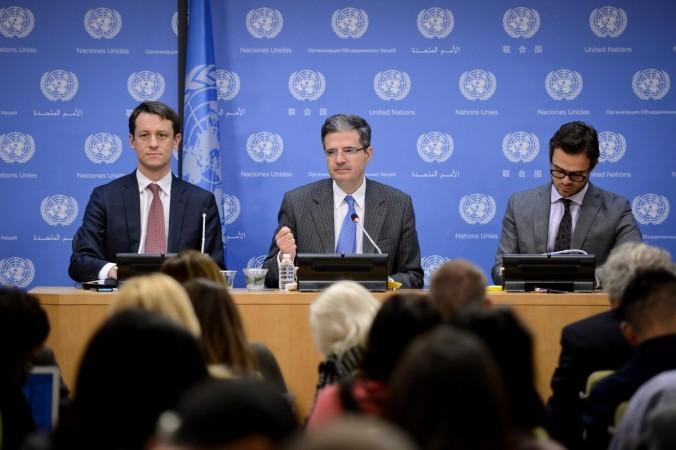
To bolster the legitimacy of the UN in a changed world, it is "vital" and "urgent" to expand the Security Council's permanent membership to include India, France has declared.
France's Permanent Representative Francois Delattre said Tuesday, "France favors enlarging the Security Council's both categories of membership, permanent and non-permanent, and supports Germany and Japan, which deserve relief (from the burden of their World War II roles) today, but also India, Brazil and African representation."
His ringing endorsement of permanent membership for India came in his speech in French at a session of the General Assembly commemorating the 70th anniversary of World War II.
As a permanent member of the Security Council, France's support for India - and for Brazil, Germany and Japan - is crucial as the long stymied reform efforts gain new momentum during the current General Assembly session ahead of the celebrations of the 70th anniversary of UN's founding in September.
India, Brazil, Germany and Japan form a group at the UN called G-4, which is committed to lobbying for Security Council reforms and supporting each other for added permanent seats. While four of the five Security Council permanent members, France, Britain, Russia and the United States, have at other forums supported India's bid for a permanent seat, this was probably the first direct endorsement of New Delhi by a permanent member at a General Assembly meeting.
Stressing the need for Security Council reform, Delattre said a lesson learnt from World War II was that "our capacity for action is related to the legitimacy of our institutions." Therefore, "the reform of the Security Council in this respect is more than important, it is urgent, I would say even vital," he said.
"It is a fact that deserves to be repeated: 70 years after the creation of the United Nations, our world in 2015 does not have much in common with that of 1945," he added. "The United Nations must adapt and reform to reflect the world we live in today."
India's Deputy Permanent Representative Bhagwant S. Bishnoi said, "As we commemorate the end of the Second World War, we also need to take stock of the health of the institutions of global governance that were established in its wake."
Ugandan President Yoweri Museveni in his speech to the General Assembly Monday "noted that most of the fundamental structures created after World War II by the victorious powers remain unchanged," Bishnoi said. Only two sovereign African countries existed when the UN was created and the world body has failed to keep pace with the changes.
"This meeting, therefore, also presents a useful opportunity to underline the need to address what President Museveni referred to as 'the structural deficiency in the architecture for global security,'" Bishnoi added.
Brazil's Permanent Representative Antonio De Aguiar Patriota said that in reforming the Security Council, "we should be as ambitious as the statesmen who once conceived a new global order based on universal values."













